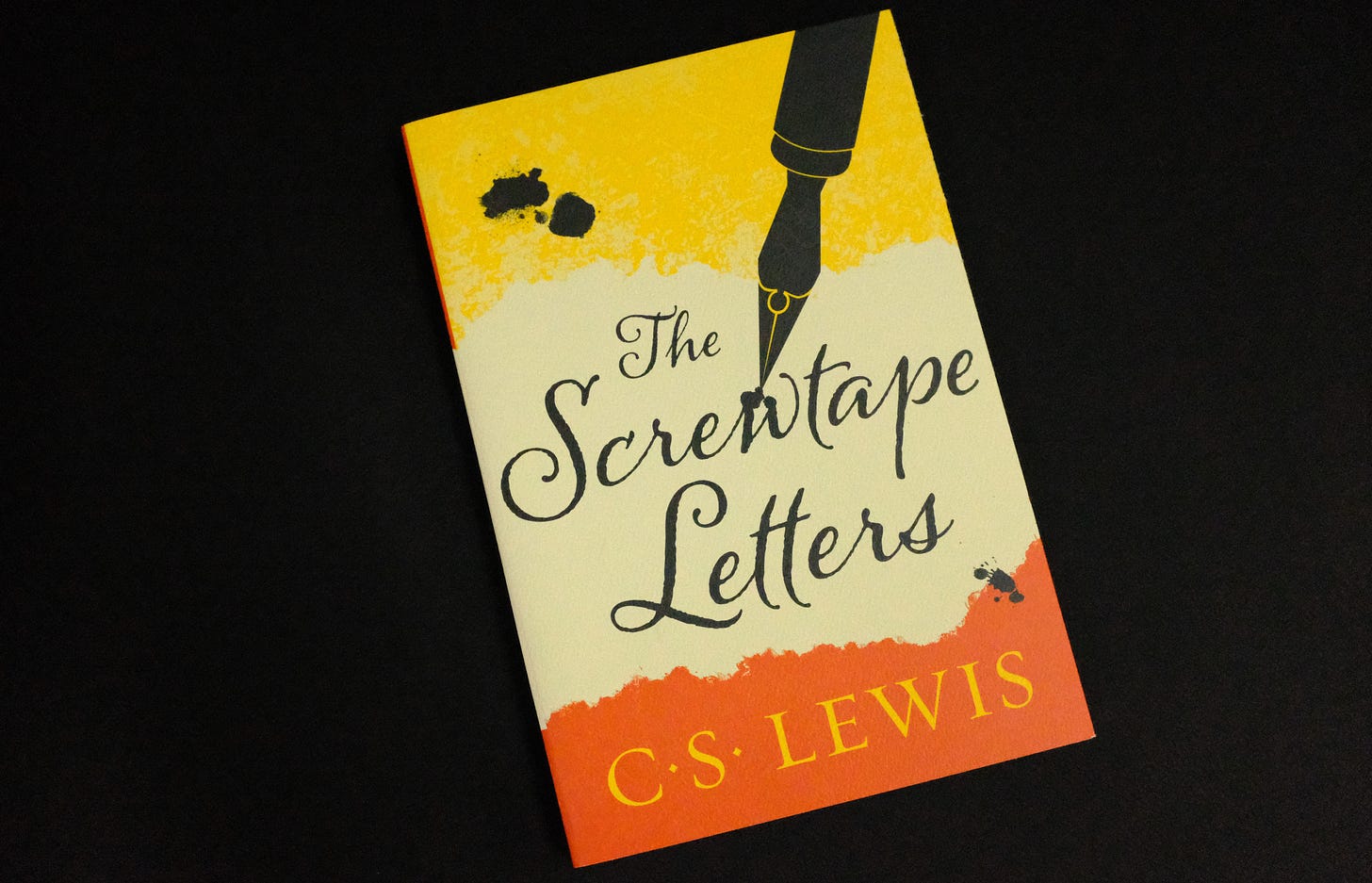C.S. Lewis’ novel The Screwtape Letters is a fascinating literary device—it's a series of letters between two demons whose goal is to tempt a man they call "The Patient." While obviously fiction, the book provides incredible insight into the topics of sin and temptation. It’s riveting work, and a classic for a reason.
Years after publishing, Lewis said Screwtape Letters was his least favorite book to write.1 Which makes sense. In order for the story to actually work, Lewis had to put himself in the headspace of a demon. What might one of Satan’s henchmen do to destroy the average person? Lewis had to think about that—really think about it. He needed to turn Screwtape on himself, imagining his own weaknesses and follies. What did it take to get him to fall to temptation in the past? What would it take the get him to stumble in the future? I’m not sure if I’d want to write a book like that. Essentially, it’s Satan’s Playbook for Your Life.
Here’s what’s really fascinating about The Screwtape Letters, though. The sins the demons hope to push on The Patient initially don’t seem all the bad. “He did not write about murder, rape, and grand larceny,” notes biographer Harry Lee Poe.2 What are the temptations emphasized in the book? Pride, selfishness, and—*scare quotes*—snobbery. Those are the big ones.
We still read The Screwtape Letters today because deep down we know its premise to be true. For most of us, we know that the darkness creeping at our heart’s door isn’t something that will land us in jail—rather, it’s looking down on others and believing ourselves more important than we ought.
But we easily forget. We forget the little sins that bring us to the edge of the bigger ones.
We are prideful and vain and just plain snobbish to those around us. We talk about others as if they are beneath us. They don’t have our sense of style. They aren’t successful. They don’t talk or act like we do. Meanwhile, are hearts grow black. And we pay it no notice. The plan is working. The best temptation is one we don’t even know is happening. Or, as Screwtape says: “The first thing is to delay as long as possible the moment at which he realises this new pleasure as a temptation.”3
Here’s one example: Lewis hated his plans being bugged or interrupted by others. I absolutely relate to this tendency. I don’t have an endless amount of free time to read a book or go for a run, and so I find myself becoming especially irritated when “my time” gets cut short by someone else. And yet, as Lewis points out, this might just be a temptation one needs to overcome. Here, again, is Screwtape:
Now you will have noticed that nothing throws him into a passion so easily as to find a tract of time which he reckoned on having at his own disposal unexpectedly taken from him. It is the unexpected visitor (when he looked forward to a quiet evening), or the friend's talkative wife (turning up when he looked forward to a tête-a-tête with the friend), that throw him out of gear.4
We all need self-care, but we also need to know when our call to love family, friends, or even strangers, trumps our desire to relax.
Oh, but how hard it is to squash the bug of self-centeredness!
As we know, people commit heinous crimes all of the time. Read the news and you’ll find stories of demonic activity everywhere. But most people don’t fall into those traps immediately. Evil knows this and, as a result, won’t tempt us to murder another human being (at least not right away). But Evil will tempt us to hate another human being—to commit murder in our heart (Matthew 5:21-22). Those dark seeds then might one day grow into a towering, invasive tree. Or, maybe they won’t. Maybe we’ll go on living lives of hate, pride, and malice, and not even realize we need help.
Do you look down on someone in disgust or pride? Do you get giddy when they stumble or fall or say something inaccurate during a conversation? Show them kindness this week. Pray for them. Don’t give the devil a foothold.
Screwtape is on the move.
Harry Lee Poe, The Making of C.S. Lewis (Wheaton, ILL: Crossway, 2021), 257. Also, it’s worth noting that I got the idea for this post after reading Poe’s take on the book.
Ibid.
C.S. Lewis, The Screwtape Letters (New York: HarperOne, 2001), 50.
Ibid, 111.





A thousand small steps to our own destruction.